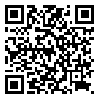BibTeX | RIS | EndNote | Medlars | ProCite | Reference Manager | RefWorks
Send citation to:
URL: http://jdisabilstud.org/article-1-2696-en.html
2- Associate Professor, Department of Psychology, Tonekabon Branch, Islamic Azad University, Tonekabon, Iran
3- Assistant Professor, Department of Psychology, Tonekabon Branch, Islamic Azad University, Tonekabon, Iran
Abstract
Background & Objectives: Multiple sclerosis (MS) is a chronic disease affecting the patients' physical conditions and limiting their activities. Patients with MS are more intolerant of uncertainty than the general population. This construct includes beliefs about anxiety, negative orientation towards the problem, and avoidant coping style. Psychological helplessness is another psychological problem that manifests itself in people with inflammation. Psychological helplessness refers to a specific distress and emotional state that people may experience temporarily or permanently in response to the pressures and problems of life. Emotional self–regulation is one of the strategies to deal with psychological problems caused by chronic diseases, specifically multiple sclerosis. People with MS experience more problems in emotional regulation than healthy people, which predicts lower quality of life. This study aimed to determine the effectiveness of schema therapy on psychological helplessness, intolerance of uncertainty, and emotional self–regulation in women with MS referred to the MS Society of Tehran City, Iran.
Methods: The research method was quasi–experimental with a pretest–posttest design with a control group. The statistical population comprised women with MS referred to the MS Society of Tehran in 2017 for counseling and treatment. The number of these people was 4816. Thus, according to the list provided by the Tehran MS Society to the researcher, 357 people entered the study voluntarily. The required number of samples was calculated based on similar studies, considering the effect size of 0.40, confidence level of 0.95, test power of 0.80, and the rate of loss of 10% for each group of 15 people. The inclusion criteria include women aged 20 to 45 years, with minimum diploma education, who have suffered from MS for at least one year, and whose illness was diagnosed by a qualified physician, with the results of diagnostic tests such as MRI in the case of MS Confirmed. Also, people whose disease had reached a severe stage or those absent from the intervention sessions for more than three sessions were excluded from the study process. The study participants responded to the Intolerance of Uncertainty Scale (IUS) (Freeston et al., 1994), Depression Anxiety Stress Scale (DASS) (Lovibond & Lovibond, 1995), and Emotional Self–Regulation Questionnaire (Hofmann & Kashdan, 2010) in the pretest and posttest phases. The schema therapy group received group intervention in 8 sessions of 45 minutes, and the control group was placed on a waiting list. Centrality and dispersion indices such as mean and standard deviation were used to describe the data. The independent t test and univariate covariance analysis were used to analyze the data. The mentioned statistical analyses were done using SPSS version 24 software. The significance level of the tests was considered to be 0.05.
Results: The results showed that schema therapy reduces the variable components of psychological helplessness, including stress, anxiety, and depression (p<0.001), relieving the variable components of uncertainty intolerance, including the stressfulness of indecision, the inability to take action, the negativity of unexpected events and their avoidance, and uncertainty about The future (p<0.001), and the increasing of emotional self–regulation variable components, including secrecy, compromise and tolerance (p<0.001) in the women of the experimental group with MS.
Conclusion: Based on the research findings, schema therapy effectively reduces psychological helplessness and uncertainty intolerance and increases the emotional self–regulation of women with MS. This treatment can improve the psychological problems of patients with MS.
| Rights and permissions | |
 |
This work is licensed under a Creative Commons Attribution-NonCommercial 4.0 International License. |



